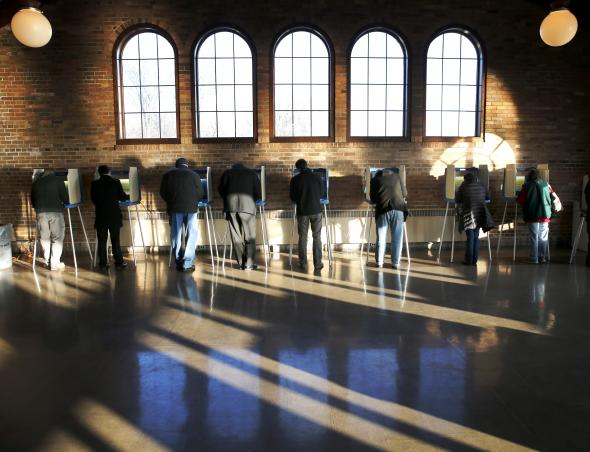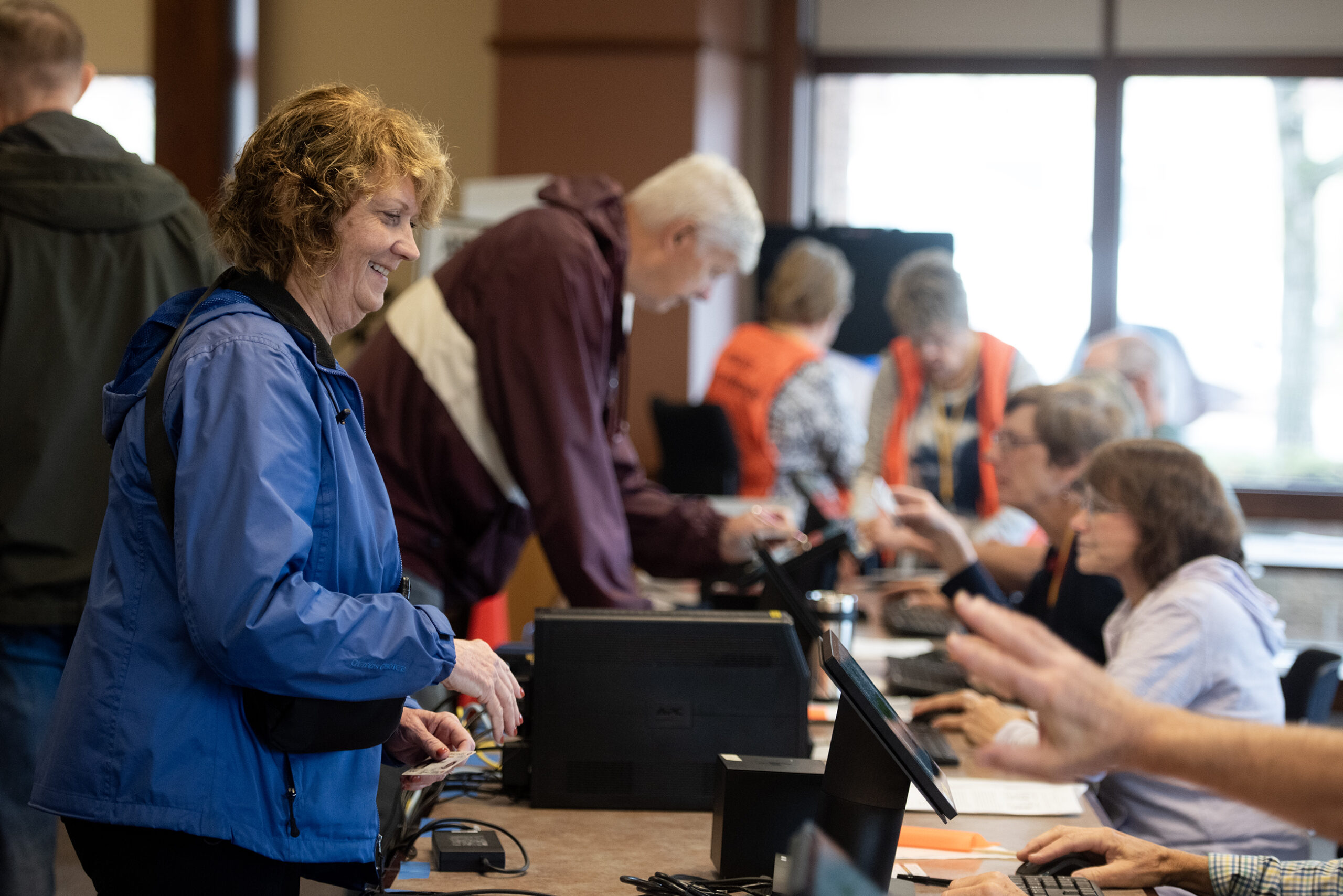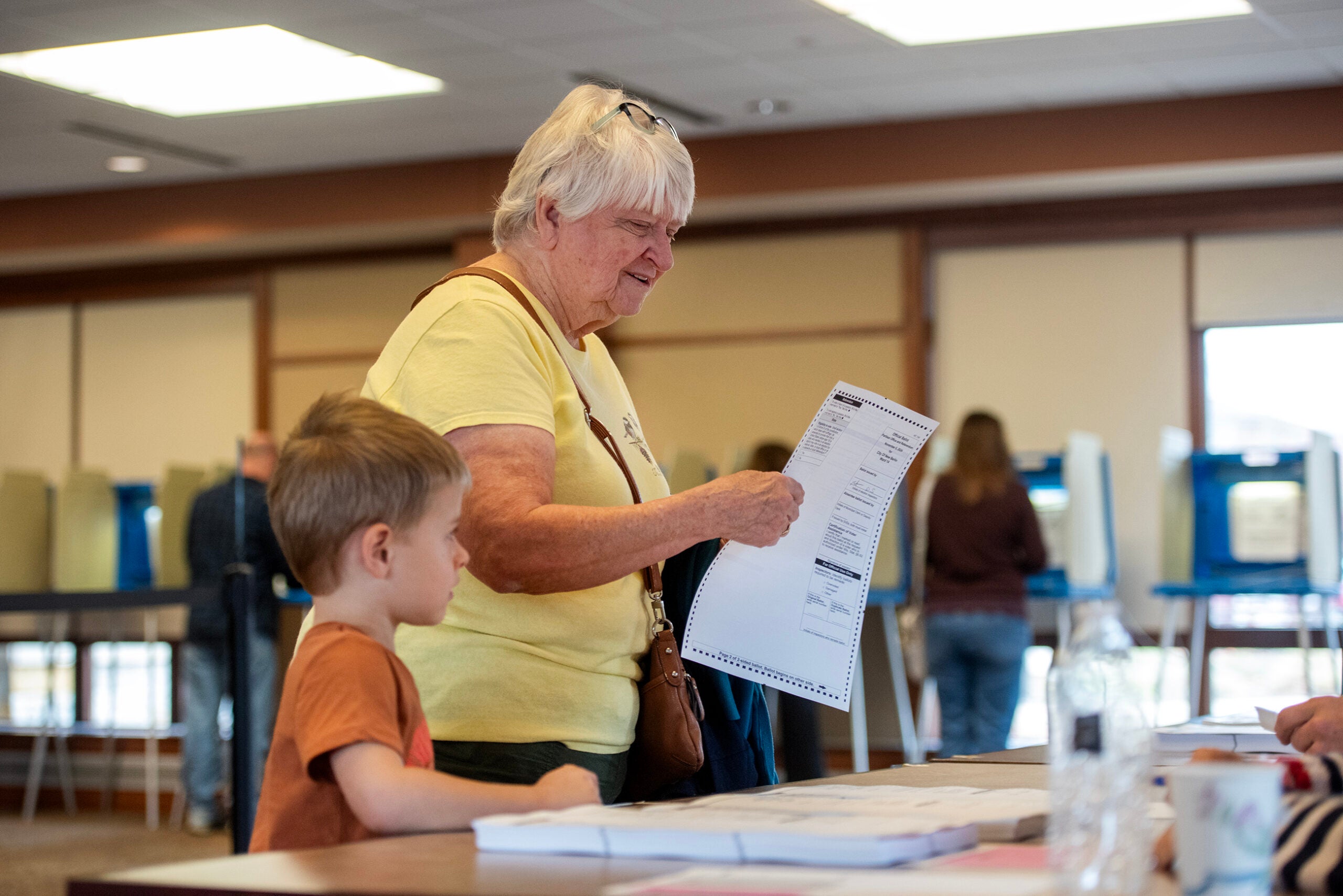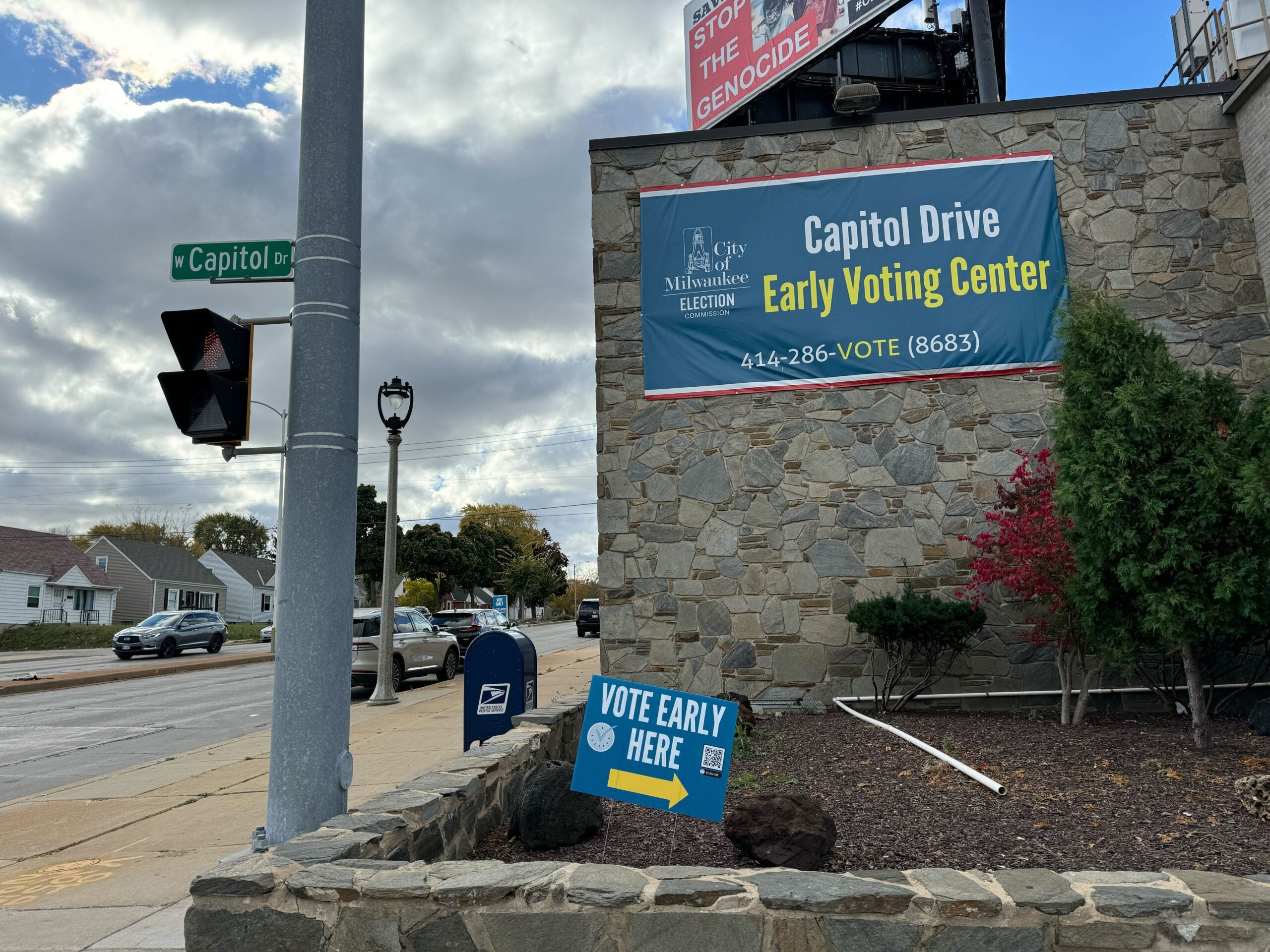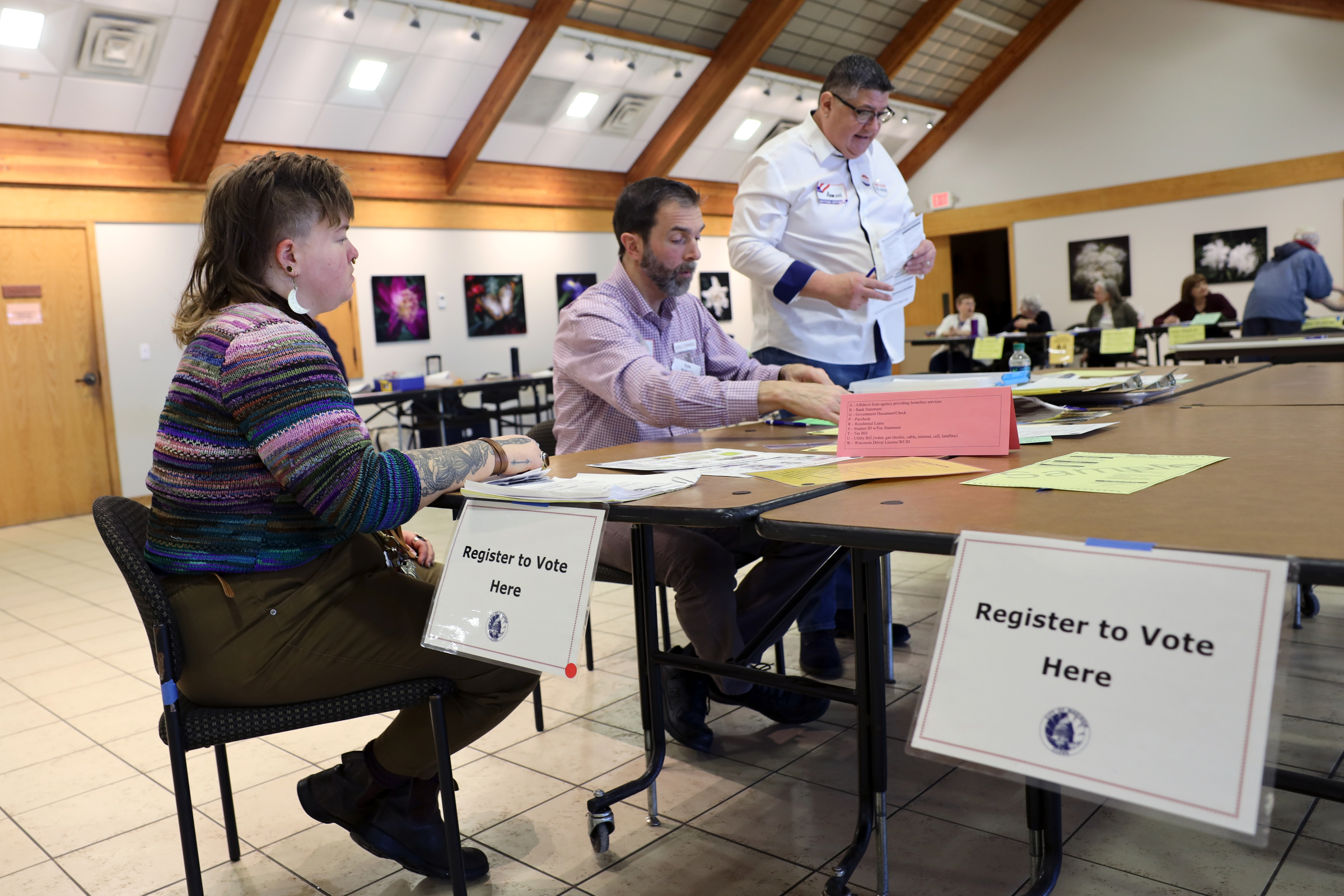Wisconsin elections officials are not concerned by GOP presidential nominee Donald Trump’s call for his supporters to monitor polling places on Election Day.
Trump, who has made claims that the election is “rigged” and said he will only accept the results if he wins, has repeatedly called for his supporters to visit election sites in their communities – particularly “certain areas” – to monitor for voter fraud, which many critics have interpreted as a reference to minority areas that tend to lean Democratic.
“There are people who are trying to fix elections,” said Wisconsin U.S. Rep. Glenn Grothman, a vocal Trump supporter. “I think we need more people monitoring what’s going on at the voting booth, and I think maybe we have to step up enforcement the day of the election – have more observers around, confirming that the people who are voting really live where they claim they’re living.”
Stay informed on the latest news
Sign up for WPR’s email newsletter.
State election officials say that’s no problem at all.
“Observers have every right to be there,” said Chris Astrella, president of the Wisconsin Municipal Clerks Association. “By all means, if people feel that’s what they want to do, they’re more than welcome to.”
However, Astrella said observers should know they can’t “run amok” in polling places. The state enforces a number of rules governing election observer conduct.
The state of Wisconsin requires observers to check in with the polling place’s chief inspector, show a photo identification, sign a log book and wear a tag or badge identifying them as an observer. Observers are also not allowed to confront voters directly, take photos or videos and must remain in an observation area situated at least 3 feet – but not more than 8 feet – away from the tables where voters can register to vote or obtain their ballots.
Astrella said his colleagues haven’t expressed much concern about Trump’s call for more observers.
“We are always talking about observers, but I wouldn’t say just because Donald Trump is bringing stuff up makes us any more or less aware of observers,” he said. “I wouldn’t say it’s any more or less heightened.”
Andrea Kaminski, executive director of the League of Women Voters of Wisconsin, is concerned the call for more observers could intimidate some voters and keep them away from the polls.
“That really would be too bad because in Wisconsin we have really good election observer rules, we have good laws to protect voters,” Kaminski said. “I really don’t expect the polls to be disorderly.”
The League of Women Voters sends about 300 election observers to the polls in a typical election year, Kaminski said. She expects about that number this year. Usually, there is just one League of Women Voters observer per election site, she said.
Astrella said any potential influx of observers this year could be easily handled by the chief inspector at each polling place. New observers without familiarity with the rules governing their behaviors could be brought up to speed on the spot, he said.
The state also empowers chief inspectors to control the number of election observers on site, allowing them to ask some observers to leave if the polling place becomes too crowded.
Reid Magney, spokesman for the state Elections Commission, reiterated the welcome for more observers and said the state has many mechanisms in place to ensure the integrity of elections.
Safeguards include the transparency of the process, evidenced in things like public testing of voting equipment before Election Day and the allowance of election observers on site at polling places, Magney said.
The state also uses security seals on equipment and ballot bags, and conducts random post-election audits of voting equipment, Magney said.
Magney also pointed out Wisconsin has 1,854 municipal clerks, making it “the most decentralized election administration system in the country.”
“You would need a vast conspiracy among these public servants, who are really our friends and neighbors, to somehow affect the outcome of an election,” Magney said. “It would be extremely difficult to get people to conspire together to somehow change an election.”
Magney also said none of Wisconsin’s voting machines are connected to the Internet, safeguarding them from any potential ballot disruption by computer hackers.
In another move to ensure voter confidence, United States attorneys from the eastern and western districts of Wisconsin announced Thursday the appointment of assistant U.S. attorneys to oversee complaints of voting rights abuses and election fraud on Election Day.
“We all must work to ensure that those who are entitled to vote are free to exercise that right if they choose, and that those who seek to interfere with that right are brought to justice,” said Gregory J. Haanstad, U.S. attorney for the Eastern District of Wisconsin, in a prepared statement.
The assistant U.S. attorney appointees Peter Jarosz, Zachary Corey and Christopher Ladwig, will serve as points of contact for anyone who believes they have witnessed voter disenfranchisement or voter fraud on Election Day.
Wisconsin Public Radio, © Copyright 2025, Board of Regents of the University of Wisconsin System and Wisconsin Educational Communications Board.
